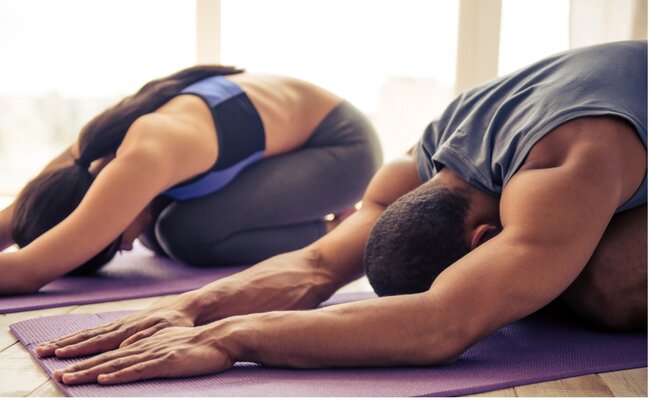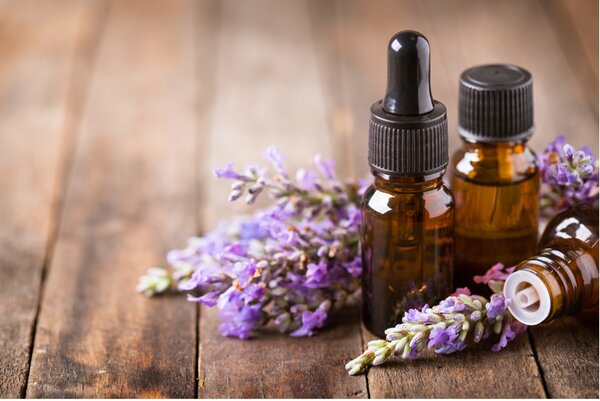7 Natural Ways To Help You Sleep – Art of Healthy Living
Some people are just naturally good sleepers. They can crawl into bed, shut off the lights and drift off into dreamland within a few minutes. Unfortunately for the rest of us, sleep doesn’t come so easily. According to the Centers for Disease Control and Prevention, most adults need seven to nine hours of shut-eye per night — but only one in three are getting it.
If you’re desperate for a good night’s rest, natural remedies for sleep are one way to try and get a better quality snooze. Read on to check out seven natural ways to improve both the quality and quantity of your sleep.
Relax With A Weighted Blanket
Having trouble turning off your brain at night? If your anxious thoughts are constantly getting in the way of a good night’s rest, try sleeping with a weighted throw blanket. These therapeutic blankets have skyrocketed in popularity in recent years thanks to their ability to melt away stress and support a better night’s rest. The weight of the blanket puts gentle pressure on the body, triggering nervous system responses that slow your breathing and heart rate. Weighted blankets can also help you stop tossing and turning at night, so you can lie still and fall into a deeper sleep.
Practice Yoga Before Bed
From improving balance and flexibility to relieving back pain, yoga is chock-full of health benefits. Another benefit you can add to the list? A better night’s rest. According to a 2020 review published in BMC Psychiatry, practicing yoga before bed can help you get to bed earlier and improve the quality of your sleep.
Yoga is a great exercise for insomniacs because it relaxes the body and brain, making it easier to fall and stay asleep. To reap the benefits, consider enrolling in a yoga class or experimenting with different styles of yoga on YouTube.

Minimize Evening Light Exposure
It may sound obvious, but keeping your bedroom nice and dark is key to getting a good night’s sleep. When you’re exposed to bright light, your brain activates hormones that make you feel more alert. Conversely, when you’re exposed to darkness, your brain activates hormones that make you feel sleepy.
To minimize light exposure in the evening, consider installing blackout curtains in your bedroom. (Bonus: They help reduce your energy costs in the summer.)
You can also wear a weighted sleep mask to bed. On top of blocking out artificial light, these luxurious sleep masks deliver soothing pressure to help you fall asleep.
Take Melatonin Supplements
Whether you had a string of late nights or you’re dealing with jet lag, there are a lot of things that can throw our circadian rhythm out of whack. Melatonin supplements are an easy way to help your body “reset” and get back on track.
A hormone produced by the pineal gland in the brain, melatonin is best known for regulating your body’s sleep-wake cycle. Melatonin levels rise naturally in the evening as light decreases, signaling your body to wind down for sleep.
As with any supplement, you’ll want to consult your doctor before you take this natural sleep aid.
Try Aromatherapy
Essential oils are often looked at with skepticism, but these concentrated plant extracts are backed by science. In fact, numerous studies have shown that certain fragrances can affect people’s moods and help them sleep.
Out of all the essential oils, lavender essential oil is perhaps best known for its sleep-inducing benefits. In a 2020 study published in Sleep, Science and Practice, researchers found that the scent of lavender and peppermint could improve sleep in cardiac patients. Results of another study showed that a blend of lavender, chamomile and neroli essential oils could be helpful for lowering anxiety and improving sleep quality for intensive care patients.
Essential oils for sleep can be used in a number of ways. For example, you can apply an essential roller bottle to your wrists and neck before bedtime. You can also add a few drops of lavender essential oil to a diffuser, which is a device that releases the scent into your bedroom.

Break A Sweat
If you’ve been dropping the ball on your fitness routine lately, consider this your friendly reminder to get back into it. Countless studies have shown that exercise — and moderate-to-vigorous exercise in particular — can improve sleep quality.
Interestingly, researchers have found that sleep and exercise have a bidirectional relationship (i.e., one affects the other). When you get a good night’s rest, you’re more likely to get moving and be physically active the next day. So lace up your sneakers and get out there.
Make A Few Tweaks To Your Diet
We all know that caffeine can make it difficult, if not impossible, to get a good night’s sleep. It’s why most of us drink coffee or tea in the morning rather than the evening. But caffeine isn’t the only part of your diet that could be wrecking your chances of a good night’s sleep.
If you want to improve your sleep, stay away from these sleep-disrupting foods:
- Sugar – High amounts of sugar have a negative impact on magnesium, a key nutrient that plays a vital role in sleep regulation.
- Alcohol – Alcohol is a sedative, but study after study shows that it can hinder sleep quality and increase nighttime awakenings.
- Spicy foods – Eating a spicy meal before bedtime can raise your body’s internal temperature, making it that much harder to fall and stay asleep.
To set yourself up for a better night’s sleep, reach for foods such as milk, eggs and turkey. These foods contain high amounts of tryptophan, which helps us fall asleep by revving up our melatonin production.
*collaborative post
This article was originally published by artofhealthyliving.com. Read the original article here.




